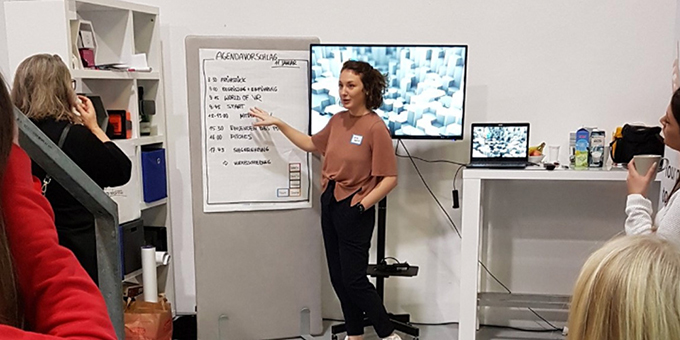
In an ever-evolving educational landscape, characterized by technological advancement and changing social and educational needs, traditional teaching approaches are facing increasing scrutiny. In the case of science education, the need for scientific literacy and the growing demand for professionals in STEM areas make it necessary to search for new teaching strategies so that future teachers can involve and inspire students in subjects related to science and technology. engineering.
In this search, in recent years the hackathon has been incorporated into teacher training programs. These are meetings in which different participants, working collaboratively, offer a solution to a challenge posed in a short period of time.
Originally from the technology industry, it offers practical and immersive learning experiences that promote collaboration, creativity and innovation in the design of educational materials.
In this way, future teachers can develop the professional skills and competencies necessary to improve their teaching effectiveness and generate a positive impact on their students’ learning.
What are hackathons ?
Hackathons emerged throughout the 1990s in the technology industry , where they were originally used to create rapid prototypes of software solutions . Known for their dynamic and collaborative nature, they are increasingly recognized as a powerful tool to drive innovation in various disciplines.
Currently, its application has transcended to other areas, thus becoming a versatile platform for solving problems and generating ideas in areas related to health , entrepreneurship or sustainability .
The development of a hackathon involves the formation of work teams that will address the proposed challenge and look for solutions contemplating systemic thinking with the interrelation between ideas, logic and contradictory or incompatible positions. At the end of the session, each team formally presents its proposals, which are evaluated in terms of feasibility, design and originality.
What is an educational hackathon for ?
In the field of education, the hackathon offers an opportunity for educational innovation, providing a structured but flexible space to realize educational materials and approaches. Unlike conventional classroom environments, the hackathon promotes active participation, critical thinking, and hands-on experimentation. Participants are encouraged to think innovatively, collaborate across disciplines and contribute ideas in real time, a process that reflects the nature of scientific research.
In the educational hackathon , the basic principles of its staging, such as intensity, collaborative work or addressing real-life, contextualized projects, are maintained. But, in addition, it contributes to promoting a culture of inclusion and diversity, due to the multidisciplinary nature of the teams, in which each participant has a perspective, enriching the collective learning experience and exponentially increasing teaching digital competence.
How can we apply it in teacher training?
The design of a specific educational hackathon for pre-service teachers requires considering several factors to guarantee its effectiveness and relevance. The selection of topics, team formation, duration and evaluation criteria are key aspects.
Topics should align with the curriculum and address educationally relevant challenges, such as scientific inquiry learning or STEM integration.
Teams must be diverse, encouraging interdisciplinary collaboration and enriching the problem-solving process.
The duration of the hackathon (which typically takes place over one or two full days) should allow sufficient time for brainstorming, creating proposals and presenting solutions, and the evaluation criteria should consider relevance, creativity and the viability of the proposed solutions.
Main challenges
Despite its potential benefits, integrating the hackathon into teacher training poses some challenges. Time constraints, teachers’ own beliefs, or logistical issues are common barriers that must be addressed to ensure the success of these types of initiatives.
Strategies to overcome these challenges include providing support to teachers and professional development opportunities, integrating the hackathon into training programs and establishing partnerships with companies and entities that contribute to its staging.
Some successful experiences have been applied in teacher training, with the development of the Educathon®, in which the skills of designing STEM teaching proposals are enhanced through a selection of topics focused on the Agenda’s Sustainable Development Goals. 2030 .
Other programs carried out with practicing teachers have focused on the creation of scientific education proposals mediated by service-learning. Also, as a means to raise awareness about the importance of the gender perspective in STEM education , creating educational resources aimed at making visible the role of women in science and engineering . In all cases, participants revealed a contribution to the development of soft skills, greater confidence in their ability to design innovative proposals and an improvement in their collaboration skills in teaching teams.
For all these reasons, the use of the educational hackathon or educathon is emerging as a valid and promising strategy to transform teacher training and teacher digital competence. With its application, a collaborative work climate is fostered that allows the development of skills related to the design of didactic proposals and learning situations.
Author Bio: Cristina García Ruiz is a Researcher Ramón y Cajal · Didactics Area of Experimental Sciences at the University of Málaga
